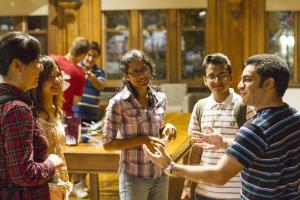
Dartmouth Undergraduate Scholarships for International Students
Help Dartmouth bring together students from all lands and backgrounds to learn in a thriving environment.
President Hanlon commits Dartmouth to improve the human condition through worldwide quest for student talent.
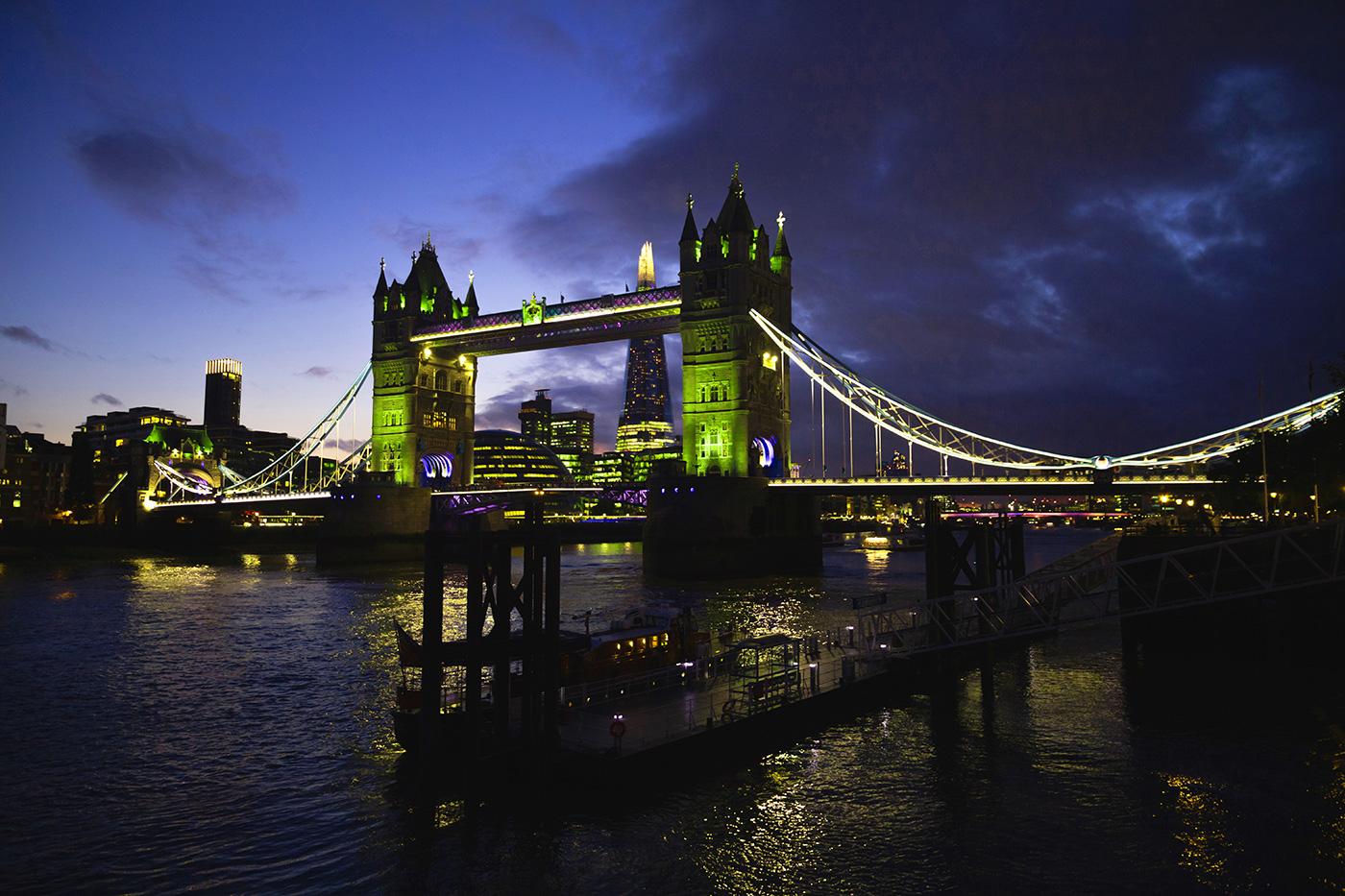
Dartmouth alumni, faculty, and families, meeting in London for the College’s first-ever Global Summit, emphatically reaffirmed the institution’s commitment to tackle the world’s most pressing challenges.
Celebrating Dartmouth’s 250th anniversary and The Call to Lead campaign, the three-day Global Summit in the heart of London drew more than 500 guests from 36 nations across Europe, the Middle East, and Africa. Events included workshops, dynamic panel discussions, presentations by Dartmouth deans, and behind-the-scenes tours of renowned museums and cultural venues led by Dartmouth scholars.
Campaign announcements included the largest gift in the history of the Tuck School of Business, commitments to expand Dartmouth’s expertise in the Arctic and to create a center to address global security issues, a $1 million three-year social entrepreneurship pilot project, and progress toward establishing need-blind admissions for all students, worldwide.
A Saturday evening gala in the 15th-century Guildhall’s medieval Great Hall capped the weekend’s activities.
The London gathering was the first of four Global Summits that are spotlighting the impact of Dartmouth scholarship and its alumni leaders. The next summit is planned for Toronto in April 2020 and Lima several months later.
“Urgent challenges require the kind of sophisticated, interdisciplinary thinking that has become a hallmark of Dartmouth leadership,” said President Philip J. Hanlon ’77 in his keynote remarks. “Young people are eager to make a difference today. As we reflect on the unique responsibility of institutions of higher learning, we are recommitting ourselves to that idealism and sense of purpose at Dartmouth.”
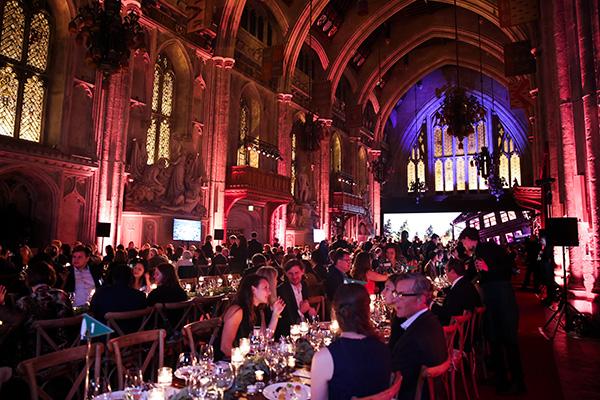
Dartmouth invited guests from three continents to London to share ideas on matters such as the future of international study, worldwide student recruitment, exploring ways to expand programs and opportunities on campus during the summer, and significant research initiatives in which Dartmouth research will benefit humankind.
Alumni leaders in government, finance, diplomacy, medicine, and education participated in panel discussions focused on topics as diverse as infectious diseases, sustainable energy, and international trade. Panelists included Johan Andresen ’88, owner and chair of Ferd, a Norwegian holding company; Mark Brzezinski ’87 former U.S. Ambassador to Sweden; Ashifi Gogo GR’09, TH’09, GR’10, TH’10, founder and CEO of Sproxil, USA, which provides digital supply chains; Peter Kilmarx ’83 MED’90, assistant surgeon general and deputy director of the Fogarty International Center at the National Institutes of Health; and Rose Mutiso ’08 TH’08, cofounder and CEO of The Mawazo Institute.
Non-alumni taking part in the weekend’s discussions included Mark Landler, London Bureau Chief for The New York Times; Karin von Hippel, director-general of the Royal United Services Institute; and Jonathan Haskel, a member of the Bank of England’s Monetary Policy Committee.
The summit placed particular emphasis on innovative initiatives where Dartmouth is poised to shape insights and solutions addressing immense issues that cross borders. Through The Call to Lead, private contributions are creating centers of scholarship focused on areas of international concern. Philanthropic support has already established the Arthur L. Irving Institute for Energy and Society and expanded the Center for Global Health Equity.
Global initiatives aimed at student access, leadership in international study, and research are at the center of The Call to Lead’s expansive vision. Dartmouth has raised $2.2 billion to date toward the $3 billion campaign, including $60 million from parents and alumni in Europe, the Middle East, and Africa.
President Hanlon announced a $25 million gift in support of TuckGO, the Tuck School’s global learning program, from the Bakala Foundation USA, a family foundation established by Michaela and Zdenek Bakala TU’89.
The Bakalas’ generous gift, the largest in the business school’s history, will strengthen and expand TuckGO, short for “Tuck Global Opportunities.” Established in 2015, TuckGO requires all Tuck students to participate in an immersive experiential course in a country that is new to them.
“As future classes of Tuck students pursue global careers of their own, this program will be essential to their preparation—giving them tangible skills and a better understanding of the world and of themselves,” said Zdenek Bakala, a member of the Tuck School’s Board of Advisors. “We are thrilled to support such meaningful experiences at a school that has meant so much to me.”
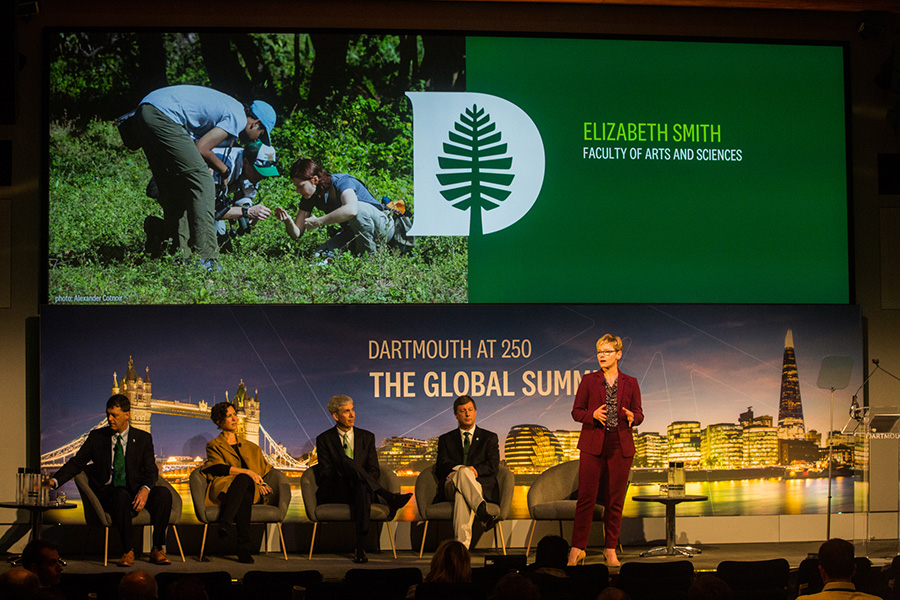
Among the campaign milestone announcements made at the London Global Summit:
Through The Call to Lead, the College aims to secure $90 million in endowed scholarship funding for international citizens in order to make Dartmouth one of only six U.S. institutions of higher education to offer need-blind admissions for all undergraduates. Guests at the London Global Summit learned that donors have already provided more than $7.5 million toward this ambitious goal.
Dartmouth has been a leader in study-abroad programs since the College sent two students to the University of Madrid 60 years ago—and today more than half of all Dartmouth undergraduates participate in international study. The campaign aims to ensure that all Dartmouth students are able to experience study outside the U.S. regardless of their socio-economic background.
Compelled by the urgency of external forces and Dartmouth’s recognized expertise in two areas of research, President Hanlon announced the College’s intention to expand its Arctic Institute and committed to a proposal recommended by faculty members to organize a new institute addressing global security issues.
Academic inquiry and research about the Arctic regions have never been more in demand, with implications across the planet. Dartmouth is equally positioned to leverage expertise within the faculty and the John Sloan Dickey Center for International Understanding to become the leading university for conducting policy-relevant research in international security. President Hanlon said the College will begin planning for these initiatives and seek private gifts to realize them before the conclusion of the campaign in 2022.
The initiatives will contribute to humankind’s understanding of these complex issues, convene global constituencies to address solutions, and prepare the next generation’s policy leaders.
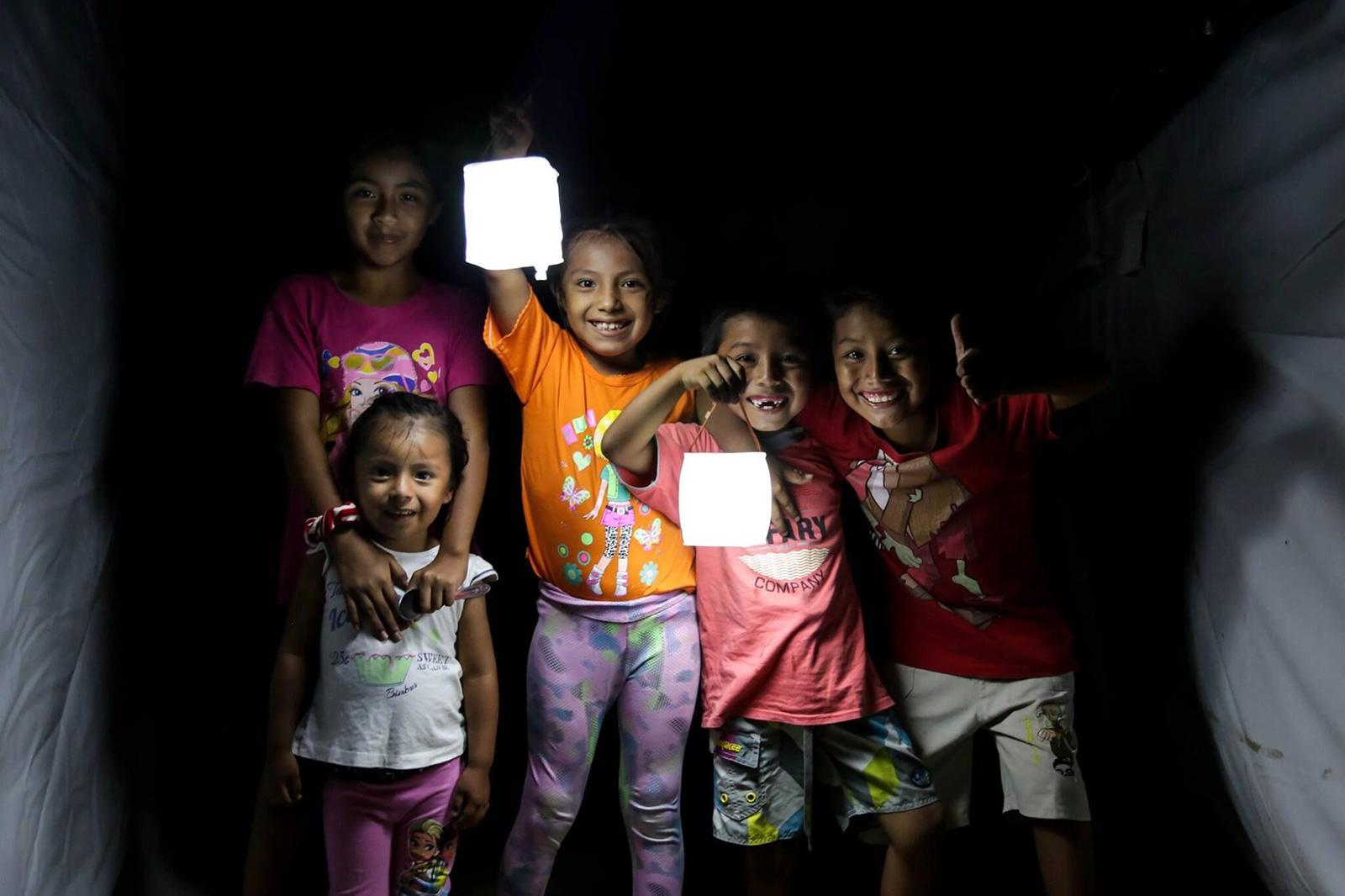
In London, President Hanlon announced that Dartmouth’s Magnuson Center will launch a three-year social entrepreneurship initiative, thanks to $1 million in gifts.
President Hanlon announced that the Magnuson Center for Entrepreneurship will launch a three-year pilot in social entrepreneurship with $1 million in new contributions to support venture-minded students, faculty, and alumni who want to create businesses that will provide wider, societal benefits.
“In the spirit of John Sloan Dickey and John Kemeny,” said President Hanlon, “we understand our role as a community of problem-solvers—never afraid to step up, never afraid to fail, always dedicated to innovating for the social good.”
The Global Summit also offered workshops to alumni parents on the College’s and Tuck’s admissions processes as well as opportunities to explore, enjoy, and learn about London through a variety of excursions and presentations led by Dartmouth scholars.
On Friday evening, alumni, parents, and friends viewed London from the observation deck of western Europe’s tallest building, The Shard. While guests were taking in the dramatic panorama, two landmarks—the Tower of London and the London Eye, the largest observation wheel in the world—were bathed in green light in honor of Dartmouth’s sestercentennial.
At the Guildhall gala, guests heard from faculty, young alumni, and a current student who shared transformative experiences made possible by Dartmouth’s distinctive teacher-scholar model of education.
David Kotz ’86, the Champion International Professor in the Department of Computer Science, and George Boateng ’16 TH’17 presented on computational jewelry that captures data for personalized health care; Lee Lynd, the Paul E. and Joan H. Queneau Distinguished Professor of Engineering, and Anela Arifi ’20 discussed their research into liquid biofuels; and William Wohlforth, the Daniel Webster Professor of Government, and Alexander Petros ’19 shared published research into the relationship between espionage, cybersecurity, and foreign policy.
Guests also had the opportunity to participate in The Call to Serve, the Dartmouth community-wide push for 250,000 hours of service during the College’s 250th anniversary year. More than three dozen volunteers removed invasive species and refurbished outdoor classrooms in St. Andrew’s Gardens on Sunday. Following the summit, The Call to Serve tally now stands at 214,000 hours of volunteer service.